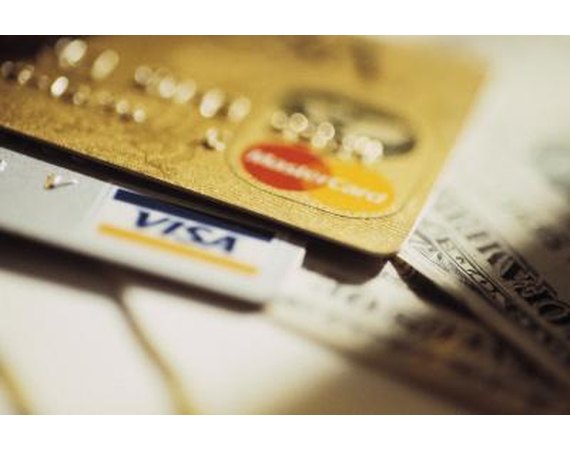
Your credit score is a three-digit rating based on your credit history, which lenders use to determine your creditworthiness. Credit problems such as a charged-off debt can lower your credit score, but these negative marks do not remain on your credit history forever. Once a charge-off drops off your credit history, you should see an improvement in your credit score.
Charge-Offs
If you stop making regular payments on a credit card or loan, the lender will eventually close the account. Although you still owe the debt, the lender no longer considers your account active or collectible. Therefore, he will update your credit report to show a charge-off, which will lower your credit score. Bankrate reports that as of 2010, a charge-off will remain on your credit report for seven years.
Credit Score Basics
Five factors influence your credit score: the amount of debt you owe, your payment history, how long you've had credit, the types of credit you have and recent applications for new accounts. Positive factors, such as paying your credit card bill on time, raise your credit score. Negative factors, such as charge-offs, lower it. How much a single charge-off lowers your credit score depends on your credit history.
Effects on Credit Score
Once a charge-off drops off your credit report, it will no longer affect your credit score. You may also see an increase in your credit score. The amount of this increase depends on other aspects of your credit history. For example, if you have a history of timely payments, one charge-off may not affect your credit score very much; thus, you may not see much of a difference when the charge-off disappears. If you have a poor credit history, removing a big black mark such as a charge-off may have a bigger effect on your score.
Tips
Pay your bills on time every month to avoid having another charge-off on your credit report for seven years. Consistently making your monthly payments by the due date will also help to raise your credit score.







0 comments:
Post a Comment